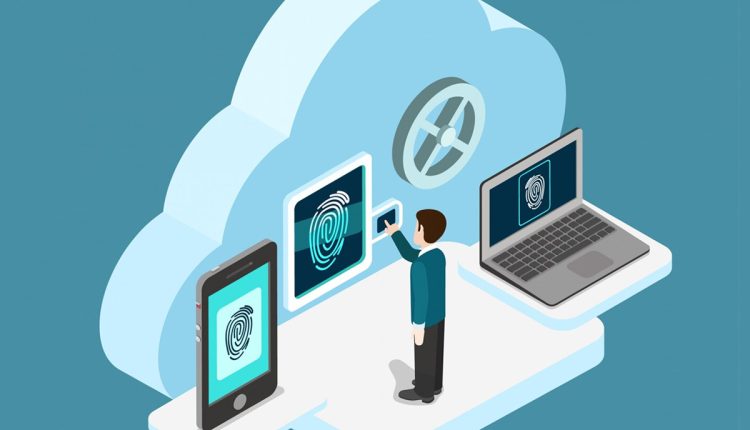The adoption of multi-tenant HR cloud platforms has revolutionized workforce management, offering scalable, cost-efficient, and centralized solutions for handling human resources. However, this technological advancement also introduces critical security challenges. Protecting sensitive employee data in these shared environments is paramount, especially as cyberattacks become increasingly sophisticated. Leveraging AI and deep learning has emerged as a powerful strategy to secure these platforms, ensuring data integrity, compliance, and resilience against evolving threats.
Understanding Multi-Tenant HR Cloud Platforms
Multi-tenant HR cloud platforms host multiple organizations’ data and applications on shared infrastructure while maintaining logical separation. This architecture ensures cost savings, seamless scalability, and frequent software updates. However, it also presents inherent risks:
- Data Breaches:
A vulnerability in the shared infrastructure could expose sensitive HR data, such as payroll details, performance reviews, and personal identification.
- Insider Threats:
Mismanagement of access controls in a multi-tenant setup could inadvertently allow unauthorized access to data across tenants.
- Compliance Challenges:
Navigating regulations like GDPR, CCPA, and HIPAA in multi-tenant environments can be complex, as data must be stored and processed securely across jurisdictions.
Catch more HRTech Insights: HRTech Interview with Ryan Bergstrom, Chief Product and Technology Officer at Paycor
The Role of AI in Enhancing Security
AI-powered security solutions have proven highly effective in addressing these challenges by detecting, mitigating, and preventing threats in real-time. AI excels in three key areas:
- Behavioral Anomaly Detection:
AI algorithms monitor user activity on HR cloud platforms, identifying deviations from normal behavior. For example, a sudden spike in data access or unusual login patterns triggers alerts, enabling rapid responses to potential breaches.
- Dynamic Access Control:
AI enables adaptive authentication mechanisms, such as multi-factor authentication (MFA) or risk-based access controls, which adjust permissions based on contextual factors like location, device, or user behavior.
- Threat Intelligence and Prediction:
By analyzing patterns from global cybersecurity datasets, AI predicts emerging threats, helping HR cloud platforms prepare for potential vulnerabilities before they are exploited.
Deep Learning: Taking Security to the Next Level
Deep learning, a subset of AI, uses neural networks to analyze vast amounts of data and uncover complex patterns. Its application in securing HR cloud platforms is particularly impactful:
- Advanced Threat Detection:
Deep learning models can differentiate between legitimate and malicious activities with high precision, reducing false positives. For example, deep neural networks analyze login patterns to detect credential stuffing or brute-force attacks.
- Malware and Phishing Defense:
Deep learning systems excel at identifying malicious payloads hidden in attachments or URLs by analyzing their structure and behavior rather than relying solely on signature-based detection.
- Secure Data Partitioning:
In multi-tenant environments, deep learning helps monitor and enforce strict separation between tenants’ data. It identifies and flags unauthorized access attempts that could compromise data boundaries.
Challenges in Deploying AI and Deep Learning for Security
Despite their benefits, implementing AI and deep learning solutions in HR cloud platforms comes with challenges:
- Data Privacy Concerns:
Training AI models often requires access to sensitive data, raising concerns about privacy and regulatory compliance.
- Resource Intensity:
Deep learning models demand substantial computational resources, which can strain the infrastructure of HR cloud platforms.
- Evolving Threat Landscape:
Cybercriminals are increasingly using AI to design sophisticated attacks, requiring constant updates and retraining of defensive systems.
Best Practices for Securing HR Cloud Platforms
To maximize the effectiveness of AI and deep learning, organizations should adopt the following practices:
- Comprehensive Data Encryption:
Implement end-to-end encryption for data in transit and at rest, ensuring that even if intercepted, the data remains inaccessible.
- Regular AI Model Updates:
Continuously update and retrain AI and deep learning models to adapt to new threats and improve detection capabilities.
- Zero Trust Architecture:
Adopt a zero-trust framework where all users and devices must be authenticated, authorized, and continuously validated for security configuration before gaining access.
- Auditing and Compliance Automation:
Use AI to automate compliance checks and generate detailed audit trails, ensuring adherence to regulatory requirements without manual effort.
Case Study: AI in Action
A leading HR cloud platform provider faced a surge in attempted phishing attacks targeting its clients. By integrating deep learning-based email filtering systems, the provider achieved a 90% reduction in successful phishing attempts. The system analyzed metadata, sender reputation, and email content patterns to accurately identify malicious emails while allowing legitimate communication to pass unimpeded.
Another success story involved an AI-powered risk analysis tool that helped a platform predict and prevent insider threats by monitoring user behavior anomalies, such as excessive data downloads or unusual login times.
The Future of Securing HR Cloud Platforms
The combination of AI and deep learning will continue to redefine security for HR cloud platforms. Emerging innovations like federated learning promise enhanced privacy by enabling AI model training on decentralized data, eliminating the need to centralize sensitive information. Additionally, integrating blockchain with AI could provide immutable audit trails, strengthening trust in multi-tenant environments.
Organizations adopting these technologies will not only secure their platforms but also build trust with clients, positioning themselves as leaders in a rapidly evolving digital landscape. By proactively addressing security challenges, HR cloud platforms can safeguard sensitive data, ensure compliance, and deliver uninterrupted services, meeting the demands of an increasingly interconnected world.
Securing HR cloud platforms in multi-tenant environments is a critical task that demands cutting-edge solutions. AI and deep learning provide unparalleled capabilities to detect, prevent, and respond to threats. However, these technologies must be implemented thoughtfully, balancing security, privacy, and performance.
Read More on Hrtech : HRTech Interview with Edward Greene, Executive Vice President and Chief Human Resources Officer at…
[To share your insights with us, please write to psen@itechseries.com ]

